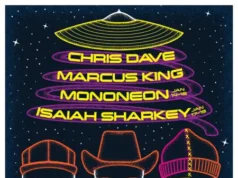
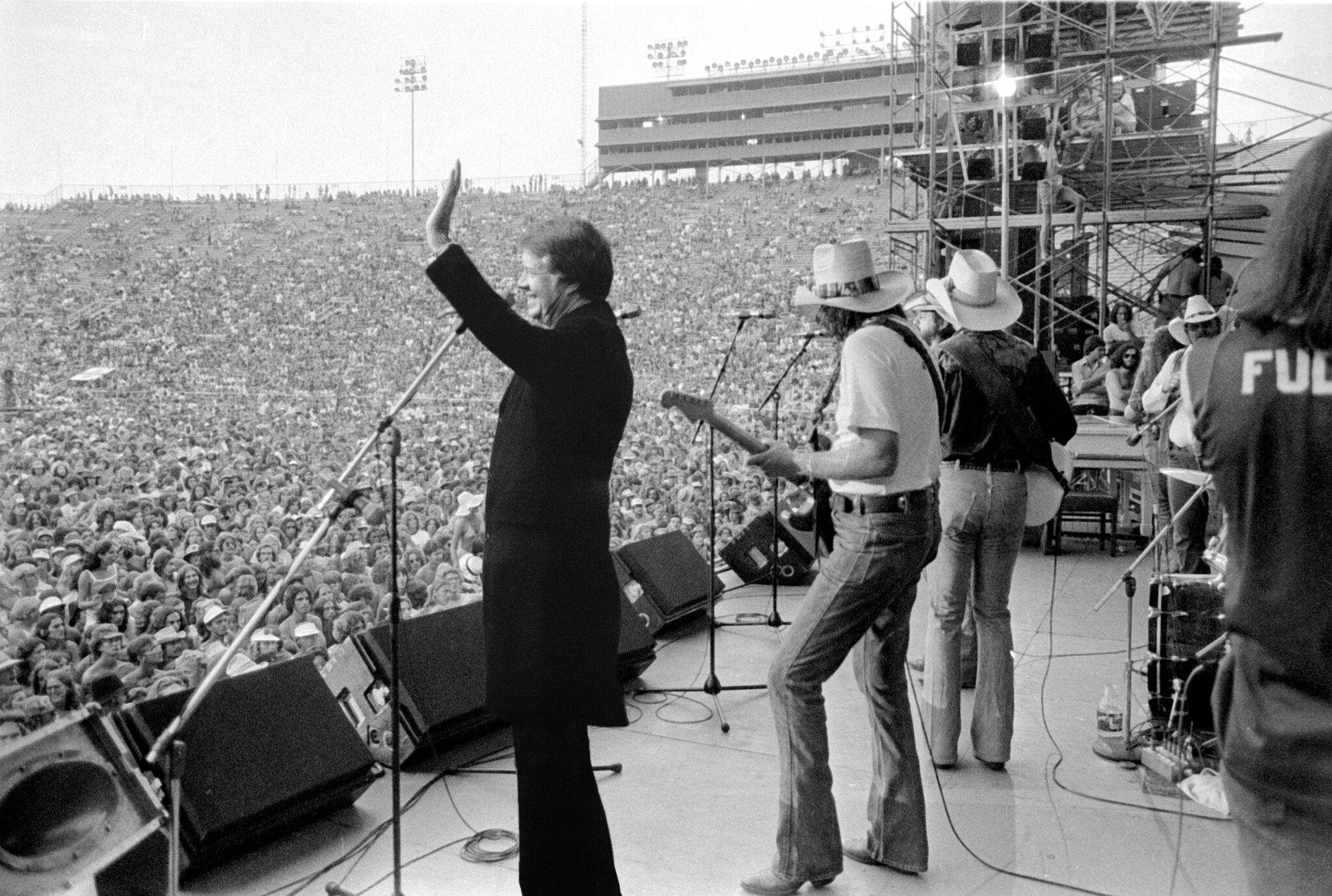
What comes to mind when you think of the Allman Brothers Band? Likely it’s the fact that they were one of the finest live bands in rock history, the artists behind perhaps the genre’s most beloved live album.
What likely doesn’t come to mind is the indispensible role they played in getting Jimmy Carter, a brainiac peanut farmer/engineer from their home state of Georgia, elected 39th President of the United States.
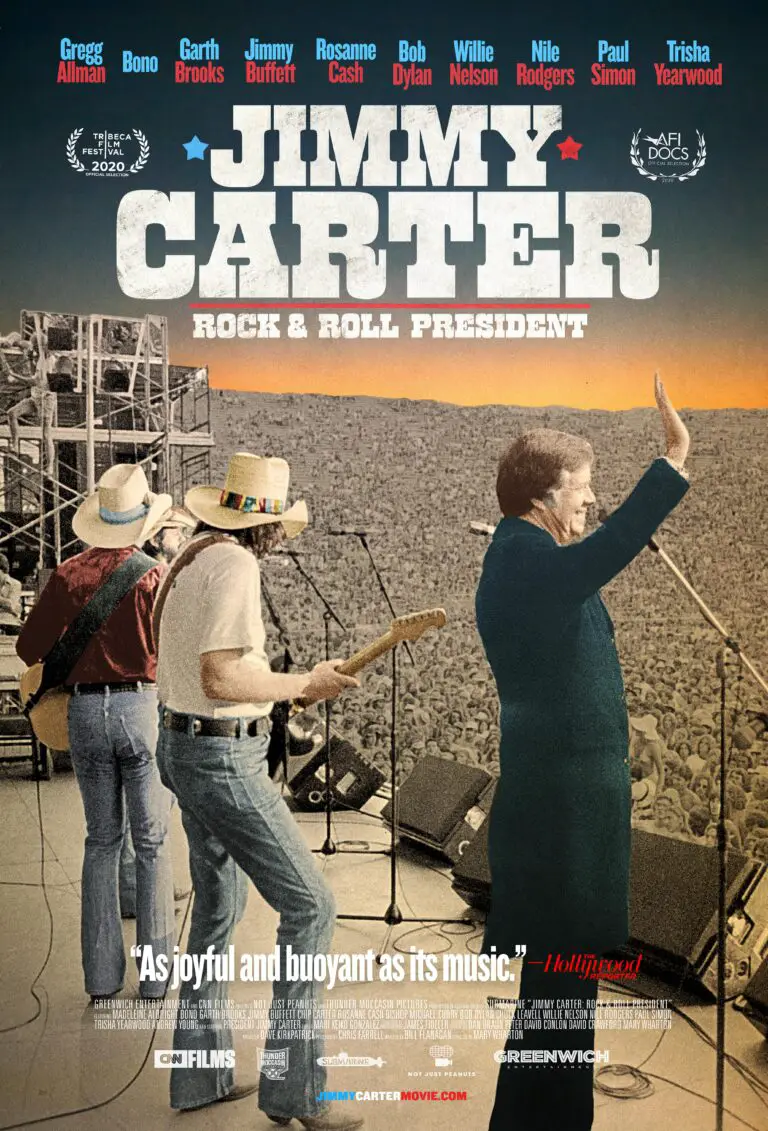
Jimmy Carter Rock & Roll President is the name of a fascinating new documentary that demonstrates how Carter’s lifelong passion for music gave him an unexpected edge as a candidate, and as a charity champion in his post-Presidential years. It was a deep love that enabled him to not only build relationships with musos that filled his campaign coffers, but to transcend racial and generational divides to score a monumental upset in the 1976 Presidential contest.
The film boasts extensive interviews with a host of stars with whom Carter has enjoyed close friendships for decades. These include, but are not limited to, Bob Dylan, Willie Nelson, Bono, Jimmy Buffett, Paul Simon, Rosanne Cash, Nile Rodgers, Garth Brooks and, of course, the late Gregg Allman.
In the film, Allman reminisces about his first meeting with Carter, when he attend a party Jimmy threw for one of his most loved musicians, Bob Dylan, at the gubernatorial mansion.
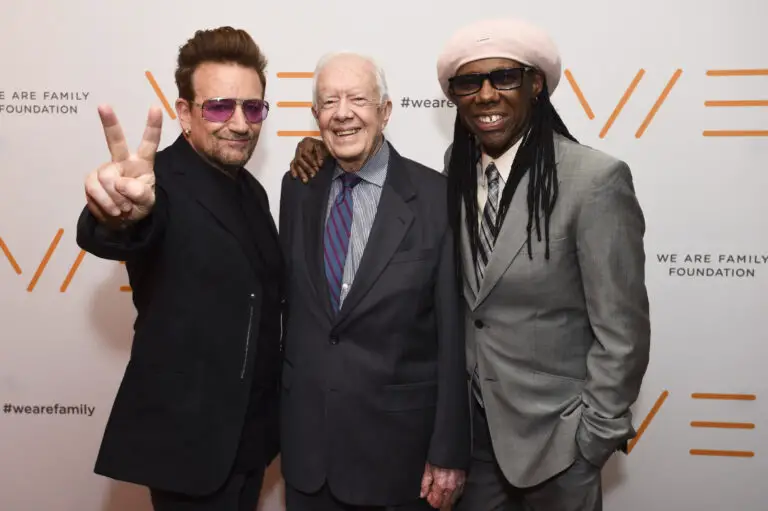
When Allman happened upon the shoeless, jeans-wearing Carter, he thought he looked like “a bum.” Carter began their discourse by telling him he was going to be “the next President of the United States.” The Allmans, their manager Phil Walden and his Capricorn stable of acts like Charlie Daniels and the Marshall Tucker Band, would play a vital, early role in getting Carter’s 1976 campaign underway, by playing a host of benefits to raise funds for his run.
But it is Carter’s close friendship with the mercurial Bob Dylan, and his deep appreciation of his music, that may be the true highlight of this film.
Carter’s son Chip tells how his father would listen to Dylan’s music with him and his brothers, knowing all the many words to the songs on every one of his albums, and often quoting them. When Carter finally met Dylan, they had profound talk about Christianity, which Dylan was then exploring. That was the beginning of a still-close friendship with a man whom Dylan calls “a kindred spirit.” In a speech captured in the film, Carter speaks optimistically about the state of the nation, by paraphrasing Dylan’s “It’s Alright,Ma” – “We have an America that is busy being born, not busy dying.”
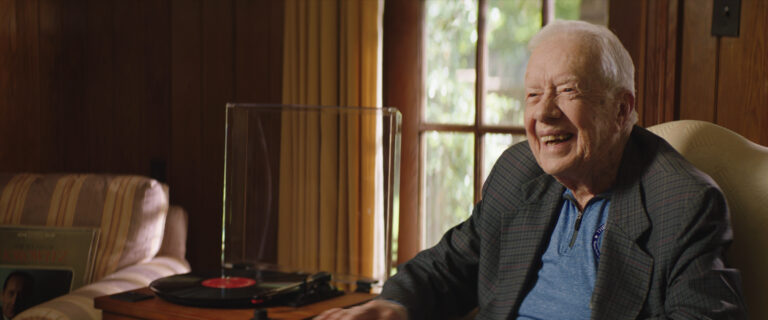
Carter’s love of music was also evident in his pre-political days, when as a child he gravitated to music played on a battery-powered radio in his electric-free home, and when he spent $600 on a stereo for his young family, even though money was very tight.
In the film, the former President also waxes extensive and poetic on the central role of music in America. “Our music, our love of it, is what holds America together,” says Carter. Growing up in a county that was 80% black, Carter talks of his love of gospel music and how it bound him to the African-American community, and how church music helped give birth to rock and roll. Also addressed is how the folk music of ‘50s and early ‘60s helped form his political views.
Another highlight of the documentary is the wonderful performance footage, much of it from events Carter held at the White House during his term.
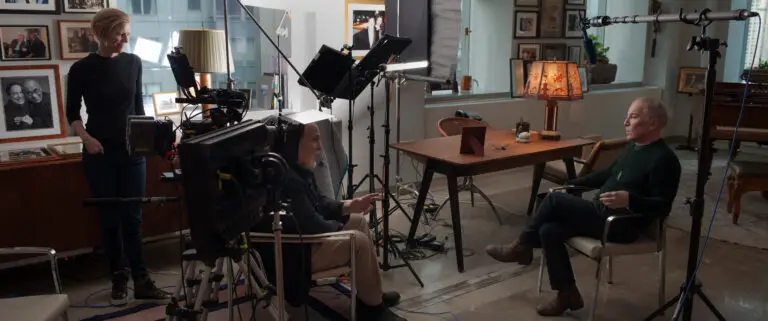
His love of jazz is evident in a clip where Carter sits in with Dizzy Gillespie to perform the stop-time vocalizing on “Salt Peanuts,” and in footage featuring Dexter Gordon, Herbie Hancock and a wheelchair-bound Charles Mingus. Also featured are wonderful performance of Paul Simon playing his “American Tune” and Aretha Franklin ”singing God Bless America” at his inauguration, as well as Ray Charles (singing “Georgia on My Mind”), James Brown and many more.
Former Secretary of State Madeline Albright discusses how Carter used music as “soft power,” to bring others to his way of thinking, be it the Republicans entertained at a South Lawn concert by his friend Willie Nelson, or by bringing the first Chinese Ambassador to the U.S. to Nashville grant his biggest wish – to meet country music’s royalty.
Rosanne Cash and David Crosby speak about the uniqueness of those times, how, in the post-Nixon years, it was the first time “the youth were in charge.” Crosby discusses how his band showed up unannounced at the White House and were ushered right in to meet the President, a reflection of these non-polarized and casual times.
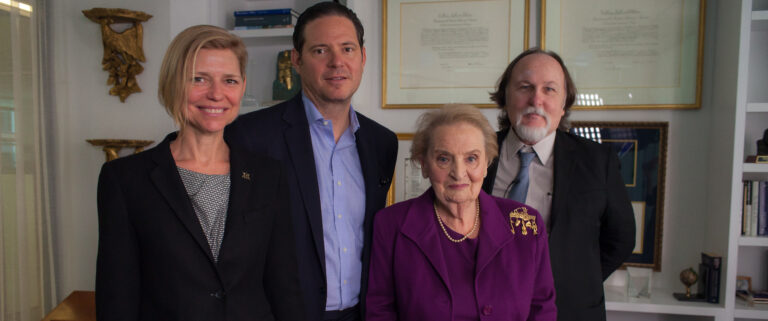
At the ceremony where Carter was awarded the Nobel Peace Prize in 2002, Bono put it best, calling Carter “a rock star to the rock stars.” He was importantly “a man who knew all the words to the songs that were my generation’s telegraph” according to Bono.
Another profound thing the documentary shows is how much the world, and the man who occupies the Oval Office and his relationship with musicians today, have changed.
When it comes to the current President, the headlines are about how stars like Neil Young, John Fogerty, the Rolling Stones, Elton John, the estates of the late Tom Petty and Leonard Cohen, etc. etc., are sending “cease and desist” letters to stop the use of their music in Trump campaign stops.
What this film also brings to light is the inherent goodness and greatness of Carter, his true love of music and how it powers his seemingly inexhaustible passion for peace and charitable works.
Director Mary Wharton and music journalist/writer Bill Flanagan hit all the right notes in this documentary, making it a must-see for fans of music. The film is available now virtually at JimmyCarterMovie.com, and will see its home entertainment release on Friday, October 9 and debut via CNN on January 3.
The post Film Review: “Jimmy Carter Rock & Roll President” appeared first on NYS Music.

